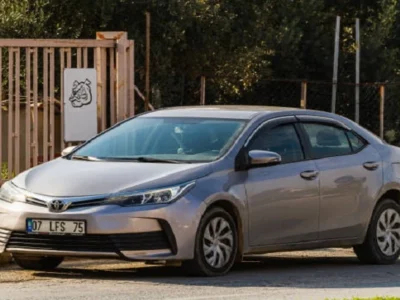Table of Contents
- Introduction to Smart Home Electrical Systems
- Key Features of Smart Electrical Systems
- Energy Efficiency and Cost Savings
- Enhancing Home Security
- Convenience and Accessibility
- Environmental Impact
- Challenges and Considerations
- Conclusion
Introduction to Smart Home Electrical Systems
Smart home electrical systems have revolutionized the way we interact with our homes. With technologies like automated lighting, smart thermostats, and voice-controlled outlets, these systems enhance convenience and improve energy efficiency.
The increasing need for smarter and more convenient living spaces has led to a recent rise in the popularity of smart home technology. Modern homeowners are increasingly focused on integrating technology into their everyday tasks to make managing household responsibilities easier, enhance energy efficiency, and strengthen security measures. This shift towards smart homes is more than just a trend it’s a step towards future-proofing our homes for better energy management and convenience.
Key Features of Smart Electrical Systems
Smart electrical systems come with various features designed to optimize your home’s functionality. Moreover, upgrading your home with a qualified electric car charger installer can further streamline your household’s energy consumption and contribute to sustainability goals. These include automated lighting systems that can be controlled via smartphone apps, smart thermostats that learn your heating and cooling preferences, and voice-controlled outlets for seamless operation of household devices. Collectively, these features create a more intuitive and efficient living environment.
Automated Lighting
Automated lighting adjusts based on the time of day or occupancy, providing convenience and energy efficiency. An example is when lights in empty rooms automatically switch off, decreasing unnecessary energy usage. Additionally, some systems allow for the customization of light schedules and intensity, tailoring the lighting to your daily activities and moods. This level of control enhances comfort and offers significant energy savings.
Smart Thermostats
Smart thermostats provide increased management of your household’s temperature regulation. They have the capability to be programmed to adhere to a set schedule and be adjusted from a distance, enabling you to maximize energy efficiency based on your personal habits. For instance, an intelligent thermostat has the ability to understand your routines and change the temperature automatically when you are away or maintain maximum energy efficiency while still keeping you comfortable.
Voice-Controlled Outlets
Voice-controlled outlets allow devices to be controlled by voice commands, offering a convenient, hands-free experience for completing daily tasks. This function is especially advantageous for people with mobility challenges, as it enables them to manage different devices without having to physically engage with switches or plugs. Moreover, voice control can be integrated with other smart home systems, creating a truly interconnected home environment.
Energy Efficiency and Cost Savings
One of the primary advantages of smart home electrical systems is their ability to optimize energy use, leading to significant cost savings. According to a study by the Energy Saving Trust, smart thermostats alone can save homeowners up to 15% on heating and cooling bills by adjusting the temperature based on occupancy and weather conditions. This intelligent energy management can substantially save your utility bills over time.
Additionally, automated lighting systems help reduce power consumption by ensuring lights are only on when necessary. This cumulative effect of small savings can lead to substantial financial benefits over time. For instance, if every light in an average home were converted to an intelligent lighting system, the overall energy consumption could be reduced by up to 30% annually.
Enhancing Home Security
Innovative electrical systems also enhance home security by integrating cameras, sensors, and alarms. For example, intelligent security cameras can be monitored remotely, providing real-time updates on your home’s status. Home’s capability deters potential intruders and offers peace of mind when you’re away from your home. You can check your home’s security through security through your smartphone, making it easier to stay connected and informed.
Smart Cameras and Sensors
Smart cameras and sensors can detect motion and send alerts to your smartphone, allowing you to react promptly to any unusual activity. Some systems even include facial recognition technology to distinguish between familiar faces and potential threats. This intelligent detection reduces false alarms and enhances the accuracy of security monitoring.
Integrated Alarm Systems
Integrated alarm systems can automatically notify local authorities in case of a break-in or other emergency, providing an additional layer of security. These systems can also be programmed to perform various actions in response to triggers, such as locking doors, turning on lights, or activating sirens, creating a comprehensive security solution.
Convenience and Accessibility
Smart home electrical systems significantly enhance convenience by allowing homeowners to control various aspects of their homes remotely. Whether you want to adjust your thermostat, lock your doors, or turn off the lights, all these actions can be managed through a smartphone app. This level of control makes it easy to ensure your home is comfortable and secure, even when you’re not. Moreover-activated devices offer hands-free operation, which is especially beneficial for individuals with mobility issues. Using simple voice commands, you can manage everything from lighting to media playback without lifting a finger. This accessibility feature makes smart homes more inclusive and easier to manage for people of all ages and abilities.
Environmental Impact
The positive environmental impact of smart home systems should be considered. These systems contribute to reduced power consumption and a lower carbon footprint. For instance, a report from Smart Cities Dive highlights how smart home technologies can lead to a more sustainable lifestyle through optimized energy use. By reducing the energy wasted, these systems help decrease the overall energy demand, reducing the environmental impact of power generation.
Automated systems minimize wasted energy by ensuring devices are only active when needed, significantly reducing unnecessary power consumption. This helps the environment and meets the growing demand for sustainable living options, assisting homeowners in decreasing their carbon footprint.
Challenges and Considerations
Despite the numerous benefits, upgrading to a smart home system can present challenges. The initial installation cost can be a barrier for some homeowners, as high-quality smart devices can be expensive. Nevertheless, the initial cost is often justified by the long-term savings on energy bills and the added convenience.
Privacy Concerns
Another significant consideration is privacy. Smart devices often collect data to function optimally, raising concerns about data security. To mitigate these risks, homeowners should use devices from reputable manufacturers and ensure they have solid security features. Keeping software updated and using secure passwords can also help protect your data.
Overcoming Challenges
Planning and consultation with professionals can help overcome these challenges. By choosing compatible devices and setting up robust security measures, you can enjoy the benefits of a smart home without compromising your privacy or budget. Consulting with an experienced provider can help ensure a smooth and successful integration of innovative technologies into your home.
Conclusion
Upgrading to smart home electrical systems offers many benefits, from energy savings and enhanced security to improved convenience and a reduced environmental footprint. While initial costs and privacy concerns are valid, the advantages outweigh these challenges. By investing in intelligent technologies, you not only optimize your home’s efficiency but also contribute to a more sustainable and comfortable living environment. As smart home technologies evolve, they will become even more integral to modern living, making our homes more intelligent, responsive, and sustainable.
Pedrovazpaulo Executive Coaching: Unlocking Potential with Its Power










Comments